LAPD Chief Moore Makes Historic Visit to CSUN Campus, Calls for Transparency and Students’ Input
The Los Angeles Police Department’s new Chief, Michel Moore, made campus history Wednesday night when he spoke at California State University, Northridge — a CSUN first, and his first forum on a college campus since being named LA’s chief law enforcement officer this past summer. Moore, who took the helm of the nation’s third-largest municipal police force, visited with students and spoke as part of a presentation to students and faculty in CSUN’s new Department of Criminology and Justice Studies (CJS).
Hundreds of students — in their evening classes, with professors — packed the Plaza del Sol Performance Hall at the CSUN University Student Union, along with top brass from the LAPD, including Kris Pitcher, the department’s bureau chief for the San Fernando Valley. CSUN Government and Community Relations; Assistant Interim Provost Matt Cahn; Dean Yan Searcy of the College of Social and Behavioral Sciences (SBS); and William Watkins, vice president for student affairs and dean of students, were among those who represented CSUN — along with numerous SBS faculty, alumni and community members.
“We’re trying to build trust externally [with the community],” said Moore, who succeeded former Chief Charlie Beck as the LAPD’s 57th chief. Moore joined the department as a 21-year-old in 1981. “We’re in a pretty good spot, but we can get better. Partly, it’s listening. Partly, it’s giving people a voice — and feeling that they have a say. As a chief, I intend to be an honest and transparent person.
“There are problems in this city that we cannot solve, and there are people in this city who want the police department to solve them,” he said. “I’m going to be a chief who says, ‘this is a shared responsibility. All of us have a responsibility for our public safety. LAPD will always have a significant role and partnership in that, but you can’t lay that on my desk. You can’t expect our men and women to go out and solve every problem that we’ve got identified.’”
Known for his mastery of subjects including crime statistics and budgets, Moore was named LA’s newest police chief in June by Mayor Eric Garcetti. Moore was born the second of five children in Porterville, Calif., and he grew up in various parts of the United States. In answering a student’s question about issues surrounding immigrants and immigration status, he noted that his father and uncles were immigrants from Europe’s Pyrenees mountain region, and that Moore was the first in his family to attend college.
“[I was] a first-generation college student and have a background of family who’ve come to this country looking for a better future,” he said. “A person’s immigration status is not a police matter.” Moore recognizes that ICE (Immigration and Customs Enforcement) is a bona fide law enforcement area of the federal government, as are the IRS and the FBI, but it’s not a matter for local police involvement, he said.
After joining the LAPD as a young man, Moore rose through the ranks, serving as a police officer, detective, sergeant and lieutenant working various patrol, investigative and administrative assignments throughout the city. He was promoted to the rank of captain in 1988. His assignments then included heading the Rampart Division following the arrest of Officer Rafael Perez for corruption, as well as overseeing security for the 2000 Democratic National Convention.
The Oct. 10 program at CSUN was moderated by CSUN alumnus Josh Rubenstein ’12 (M.P.A., Urban Studies and Planning), LAPD public information director and lecturer in CSUN’s Department of Criminology and Justice Studies. Rubenstein teaches a course on police and community relations. Moore and Pitcher also covered topics including LA’s homelessness epidemic, freedom of speech, community-based policing, sending more officers out of the office — and back to the field (and the beat) — and how police officers can learn about their own implicit biases.
“To this group [of students], I am heartened to see you,” Moore told the audience. “I have a 19-year-old daughter. She’s a sophomore in college out of state. Tonight, I have the opportunity to talk with a number of you. I see so much of you in her, and her in you — life challenges, opportunities, figuring out how you’re going to get here [to class], how you’re going to get home, how you’re going to get that extra credit from the [criminology] professor because you took a selfie with me.” (This line drew big laughs from the primarily somber and respectful audience.)
Searcy praised the CSUN students and faculty for turning out in droves to attend the event, and Vickie Jensen, CJS department chair, for organizing the program.
“Our CJS department faculty are phenomenal,” the dean said. “At CSUN, our focus is justice — decreasing distances between community and law enforcement. That is why we’re here tonight. It’s been a festive mood. The chiefs of police were here taking selfies with students, and we don’t see that all the time. I’m really happy to have that happening here at CSUN.”
Moore stood for an hour on stage, speaking with a hand-held mic, and then he visited with students in front of the stage until after 9 p.m. — fulfilling every last request for selfies with students.
“I know what’s in front of you,” Moore said as he wrapped up his remarks. “These professors and the people are here to support you as you pursue your education, as you pursue your undergraduate mission. You have such a bright future ahead of you. We live in trying times, but we also live in a tremendous time of opportunity.”
For more information, please contact CSUN’s Department of Criminology and Justice Studies or call (818) 677-2117.

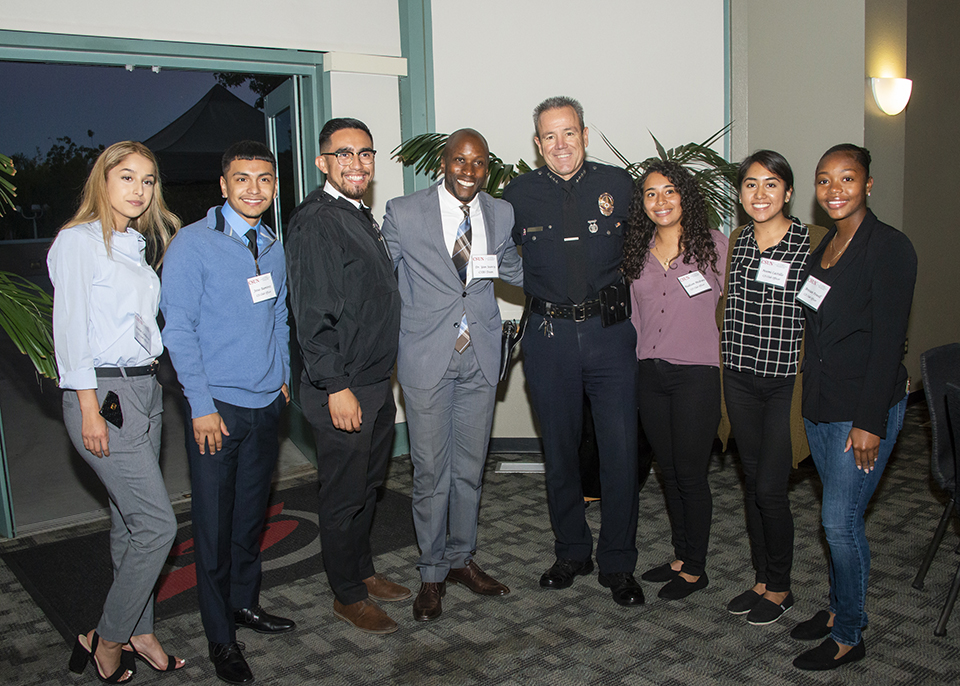
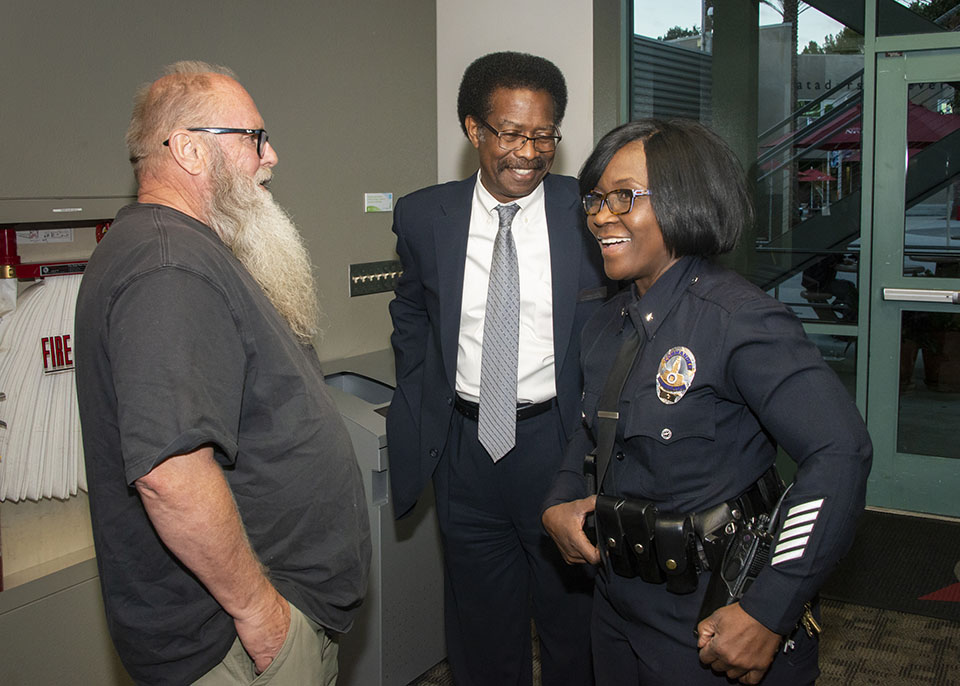
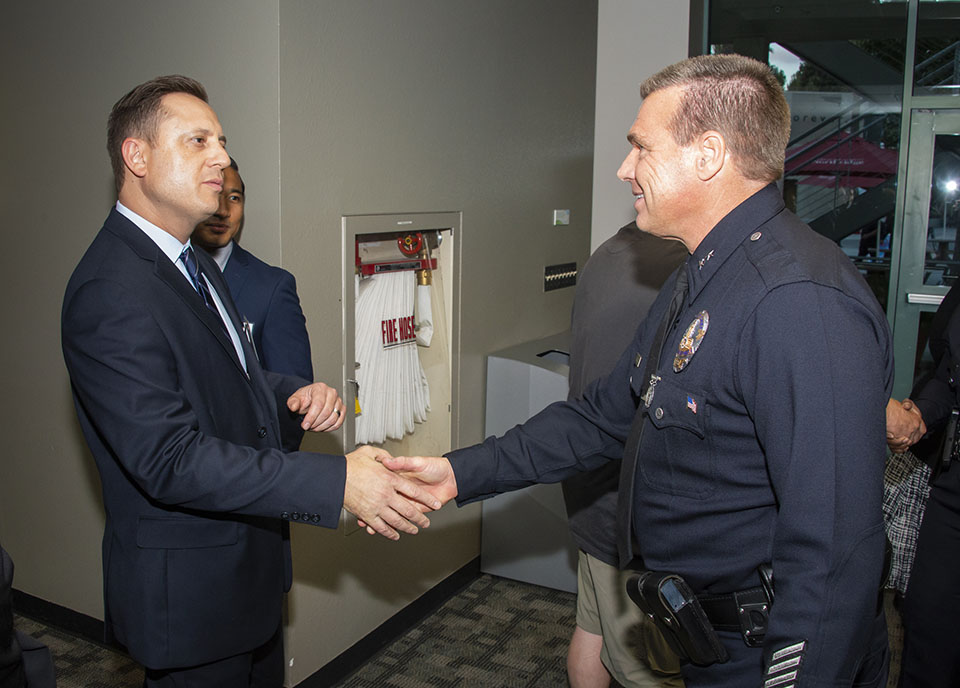
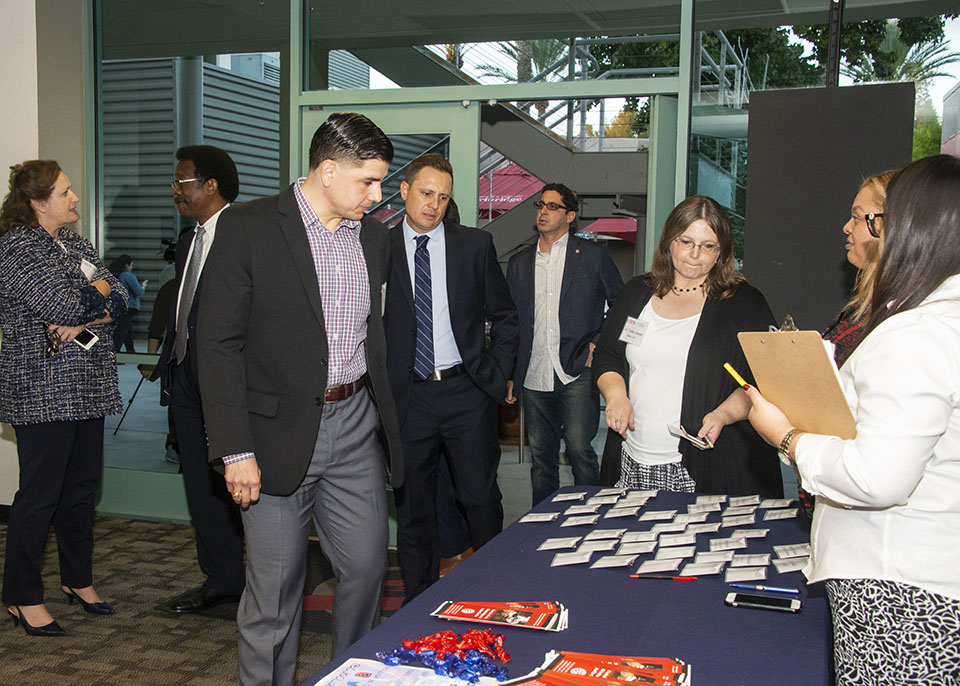
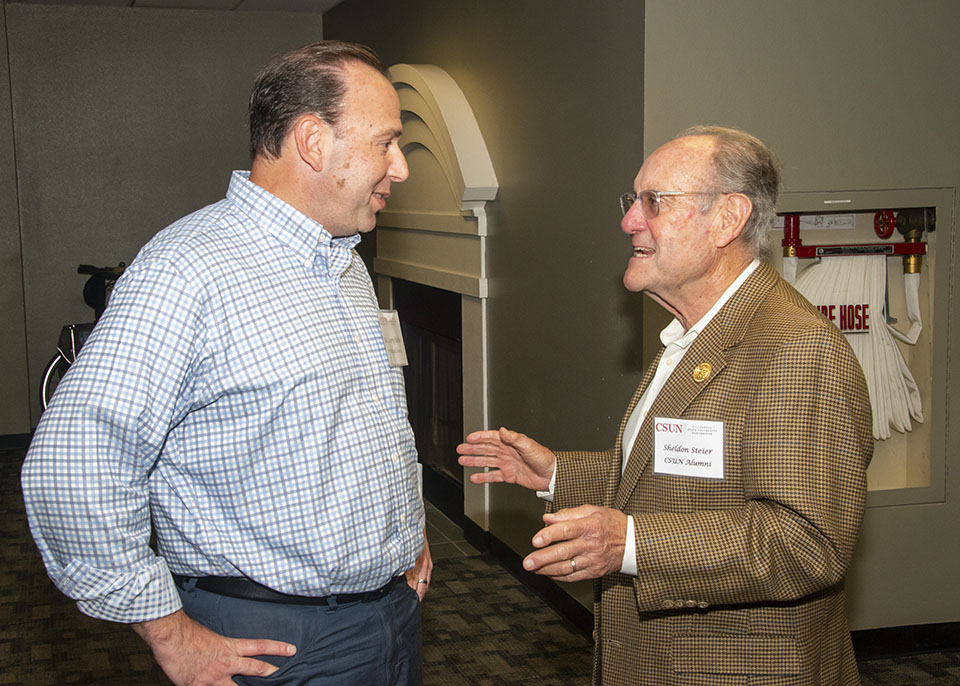
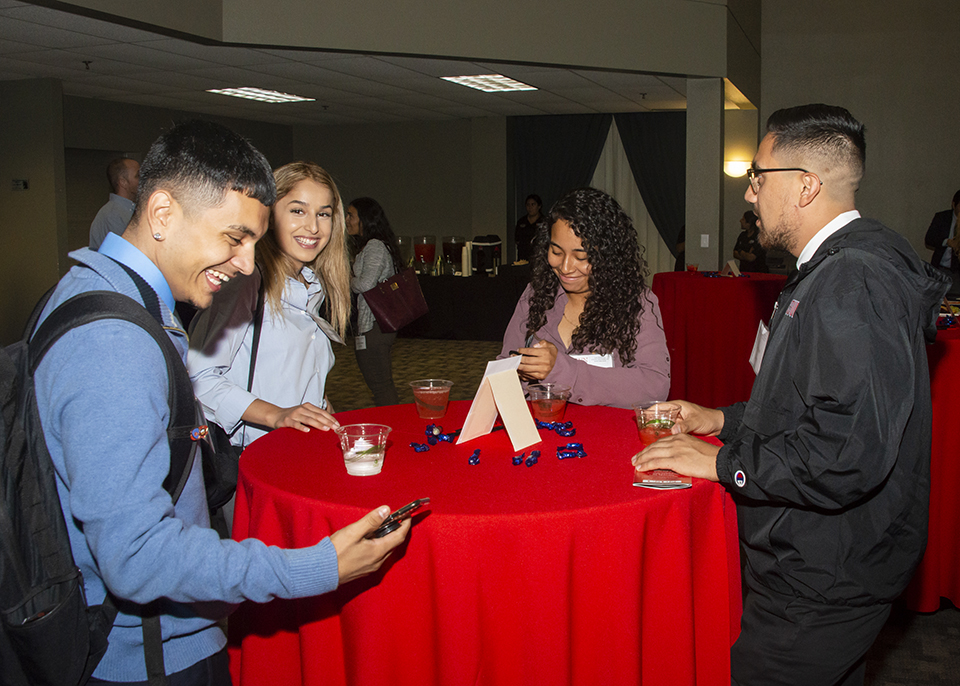
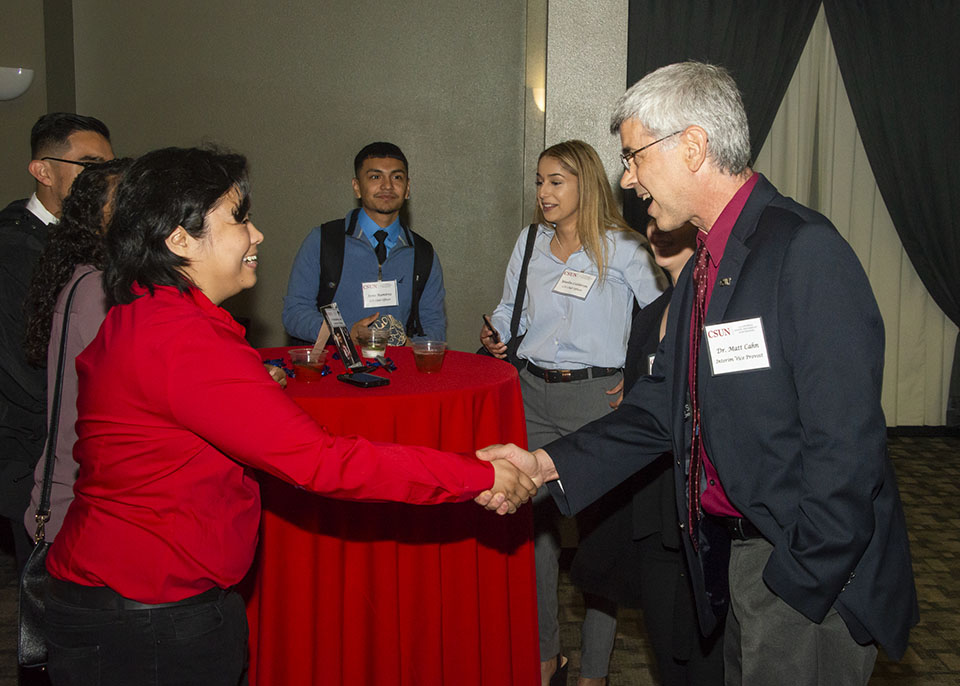
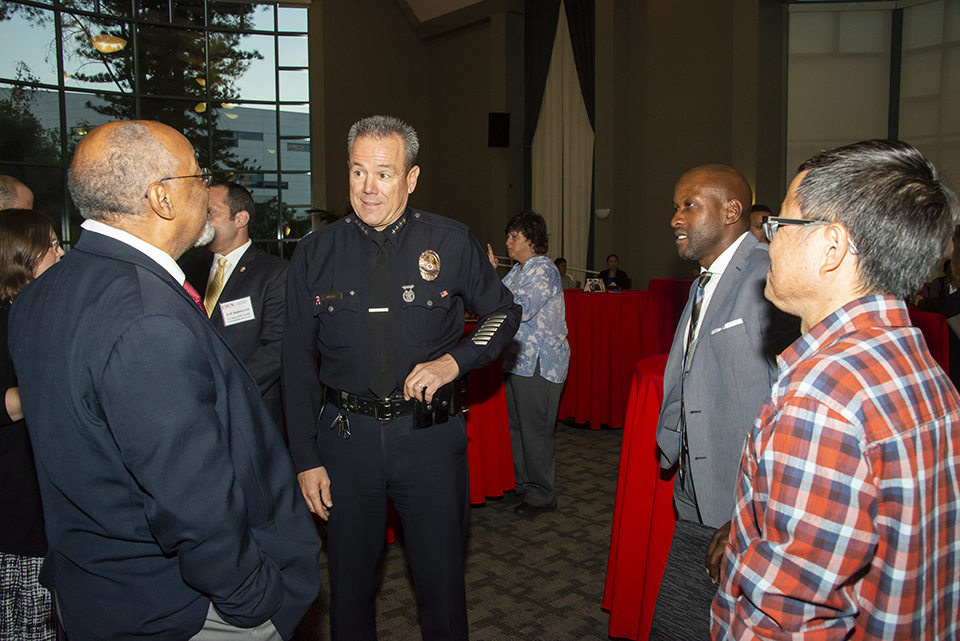
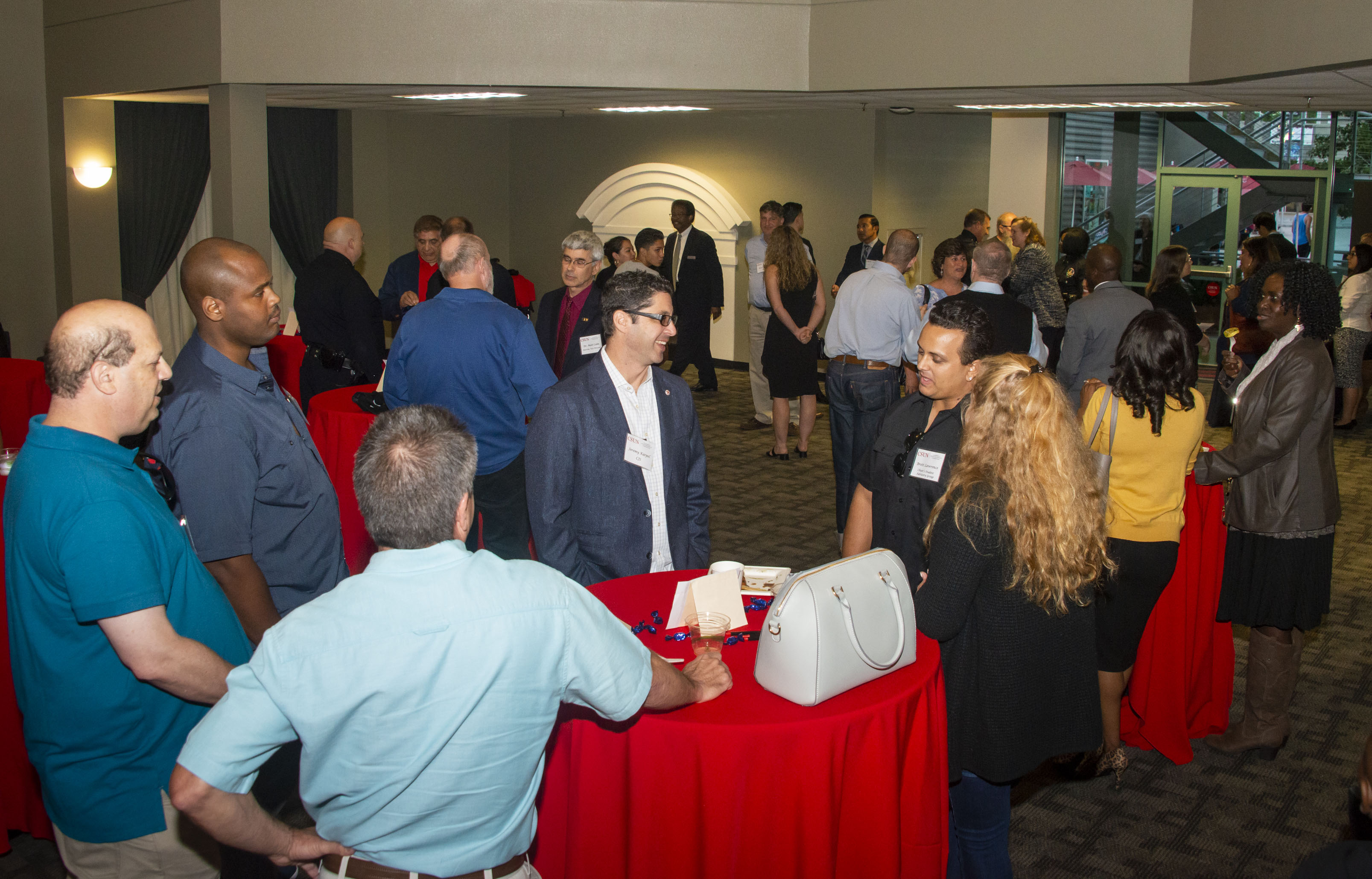
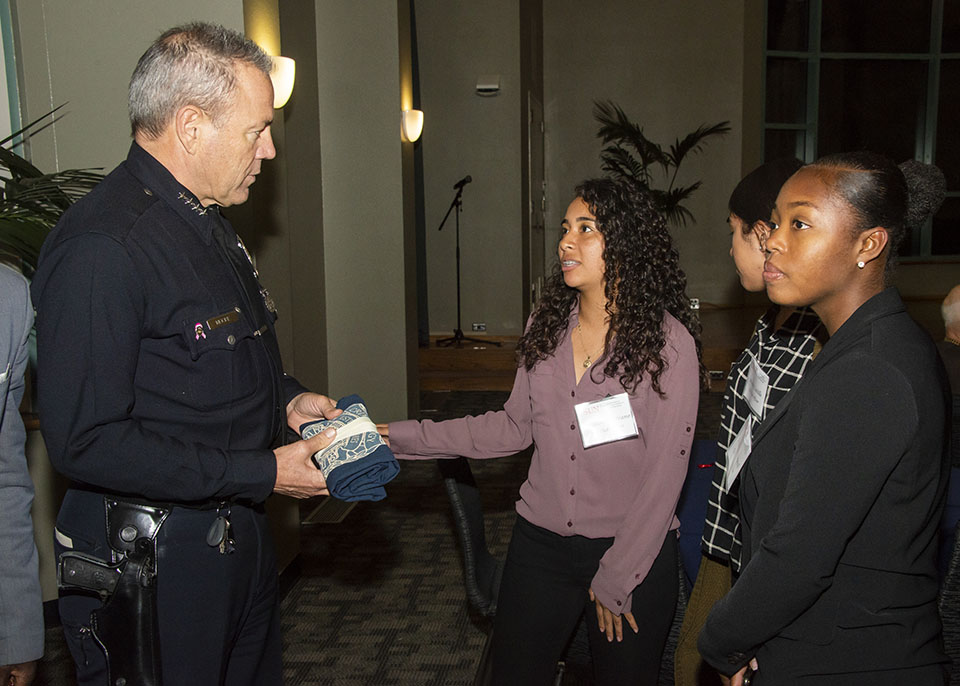
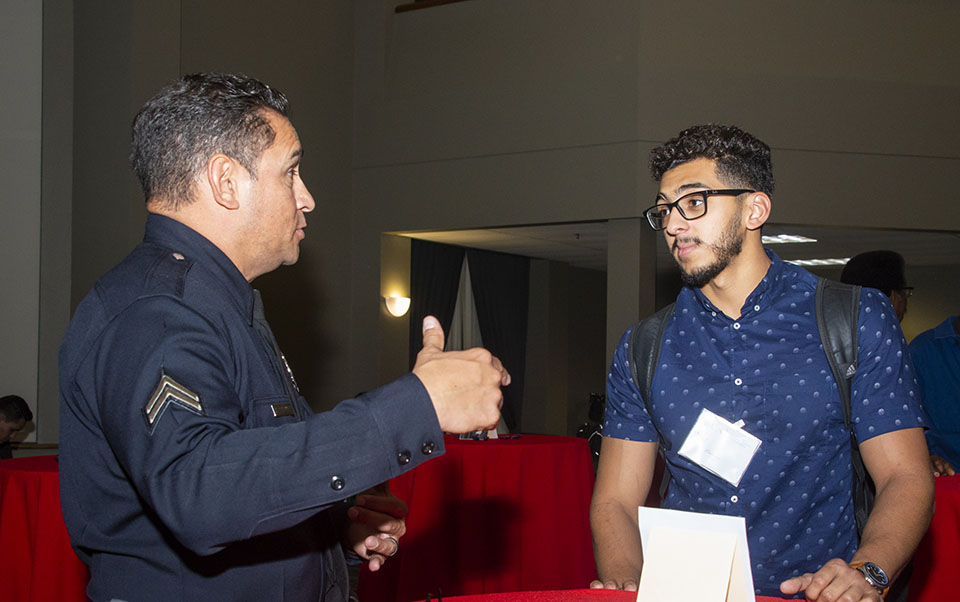
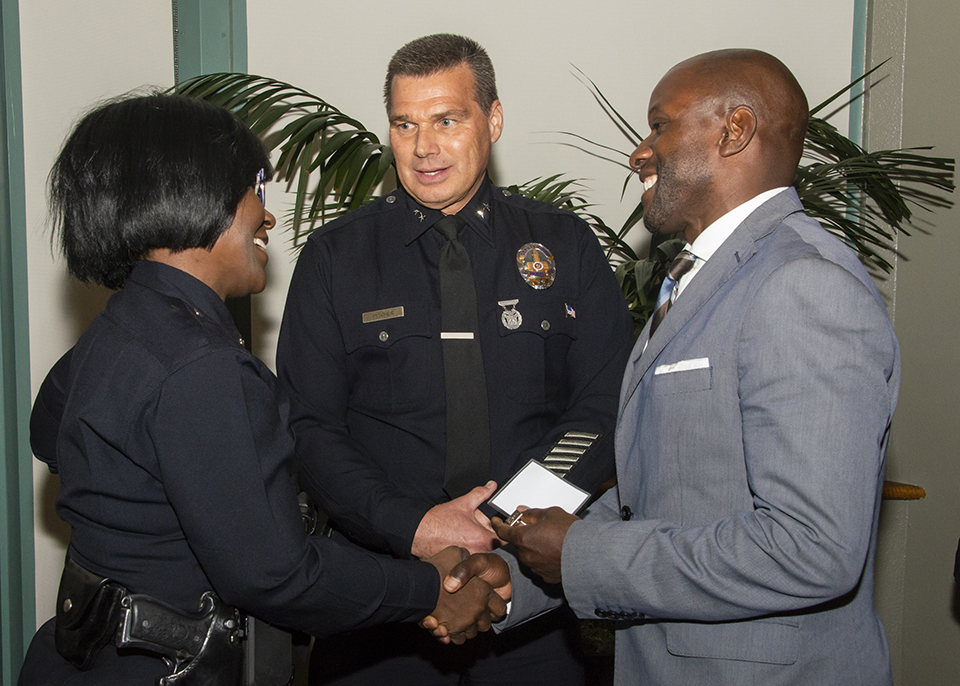
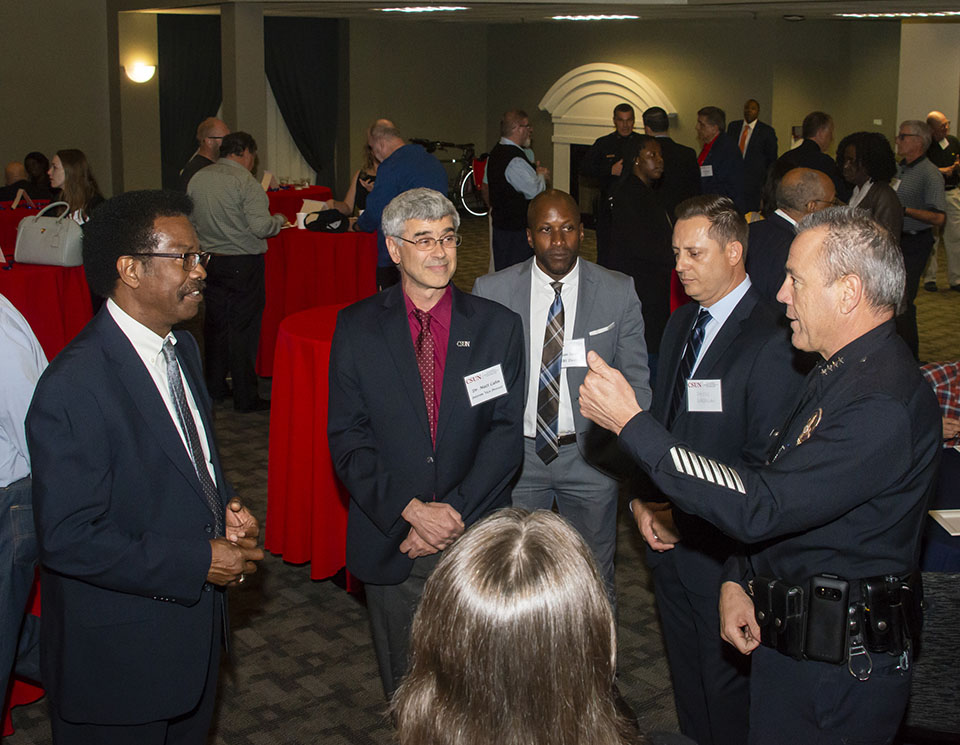
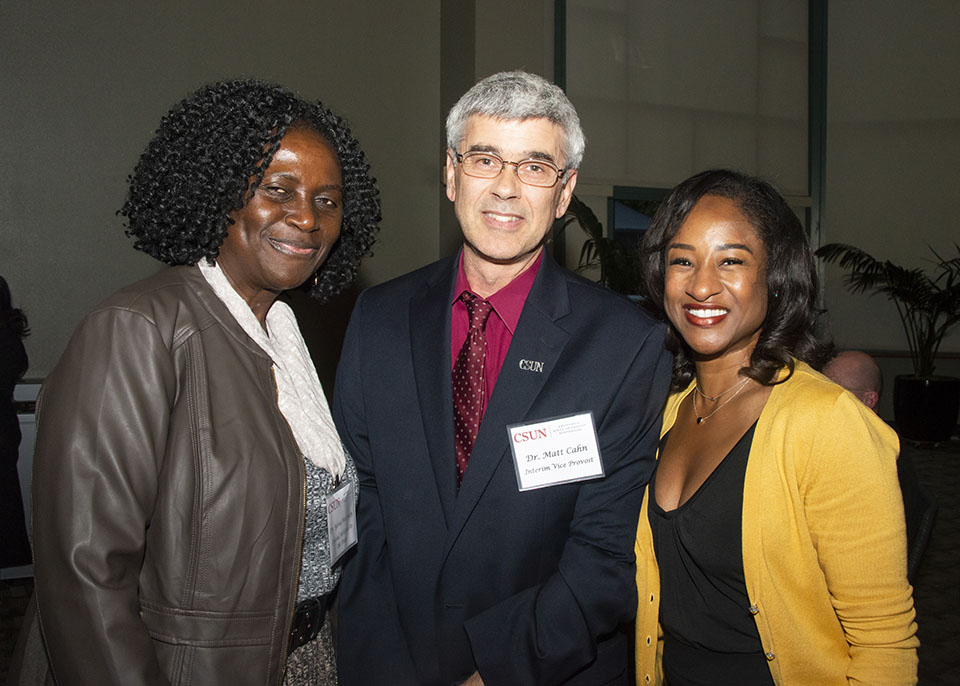
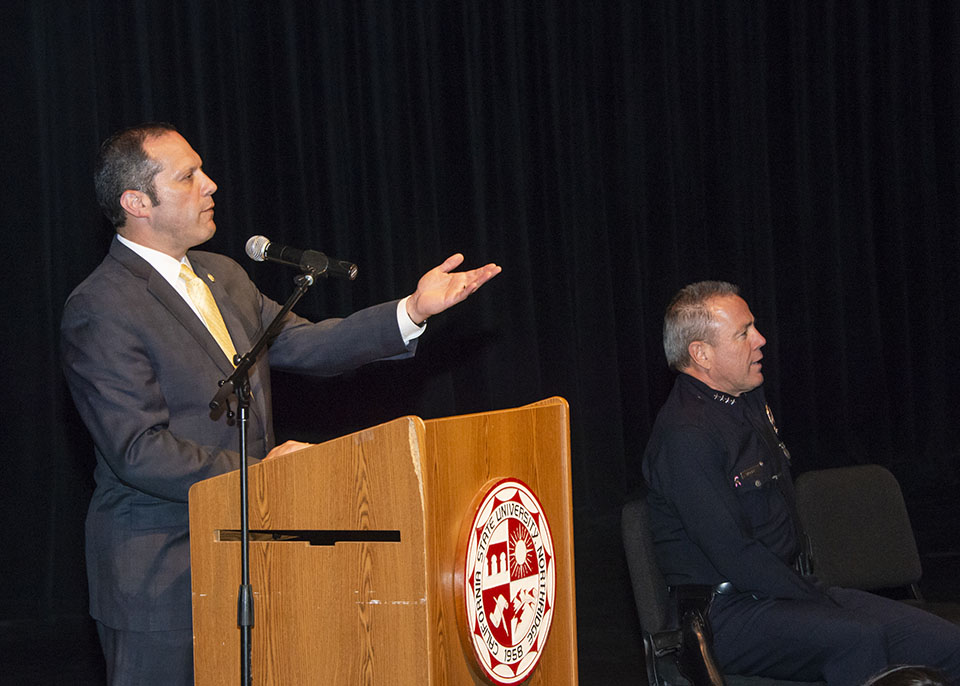
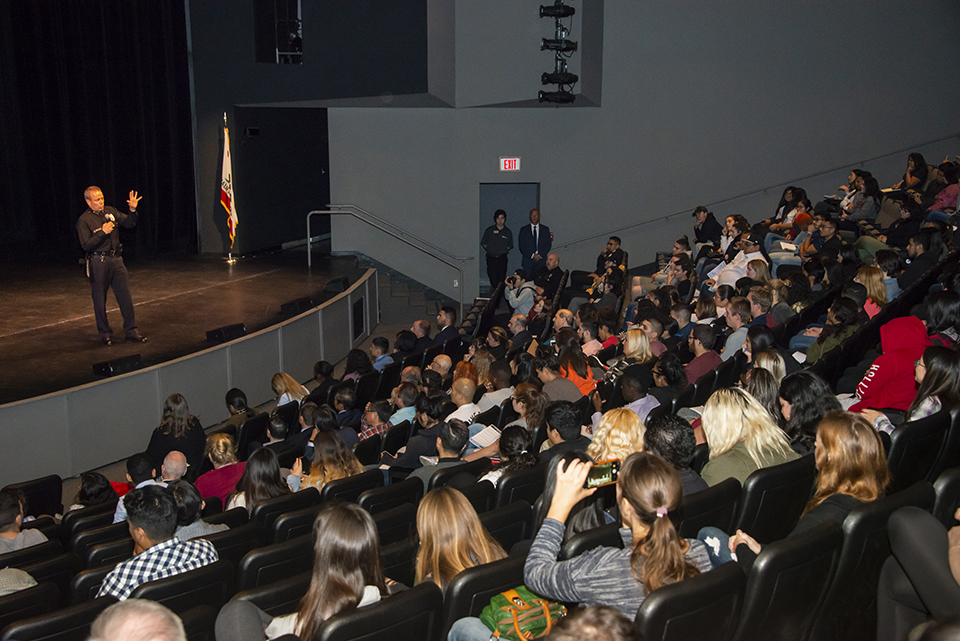
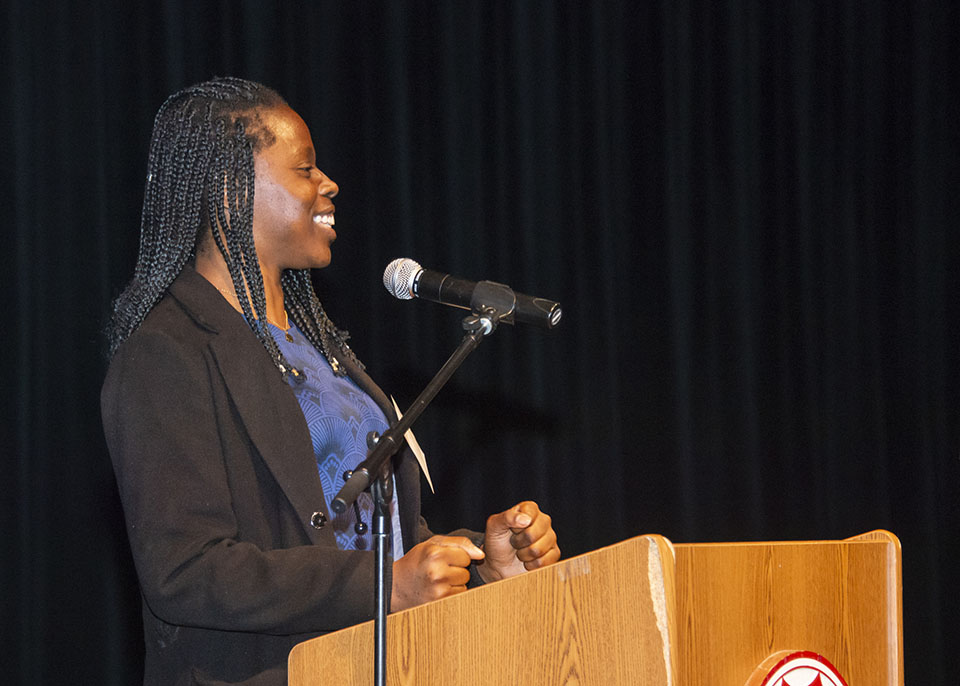
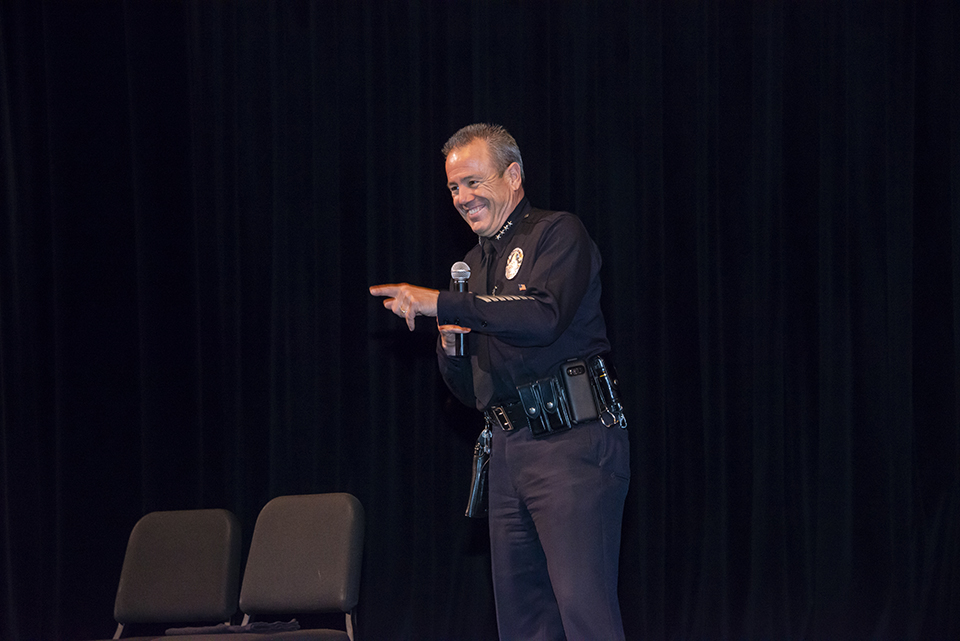
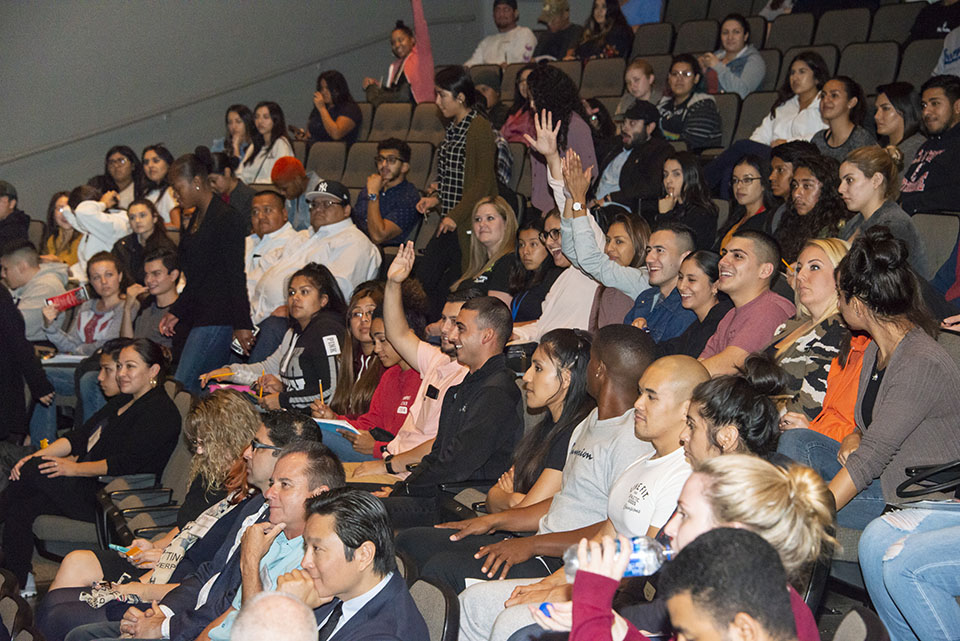
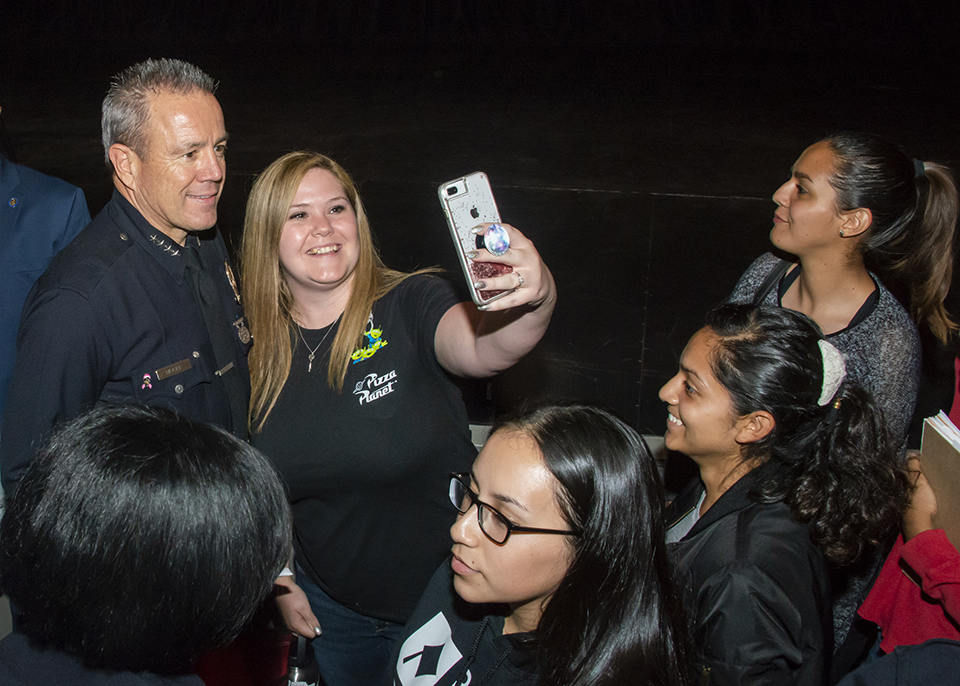
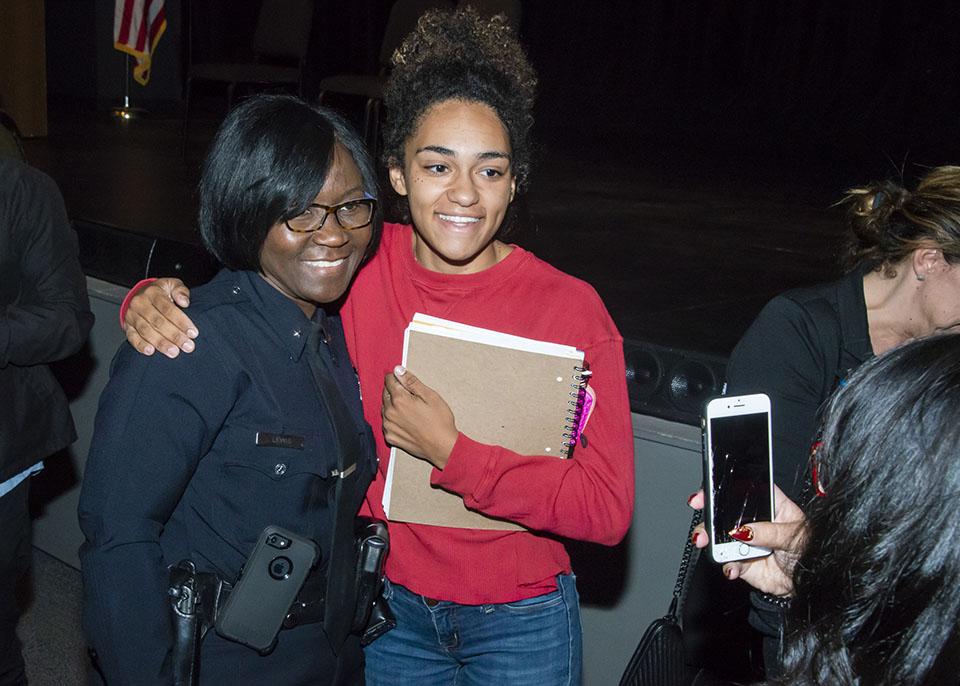
 experience
experience